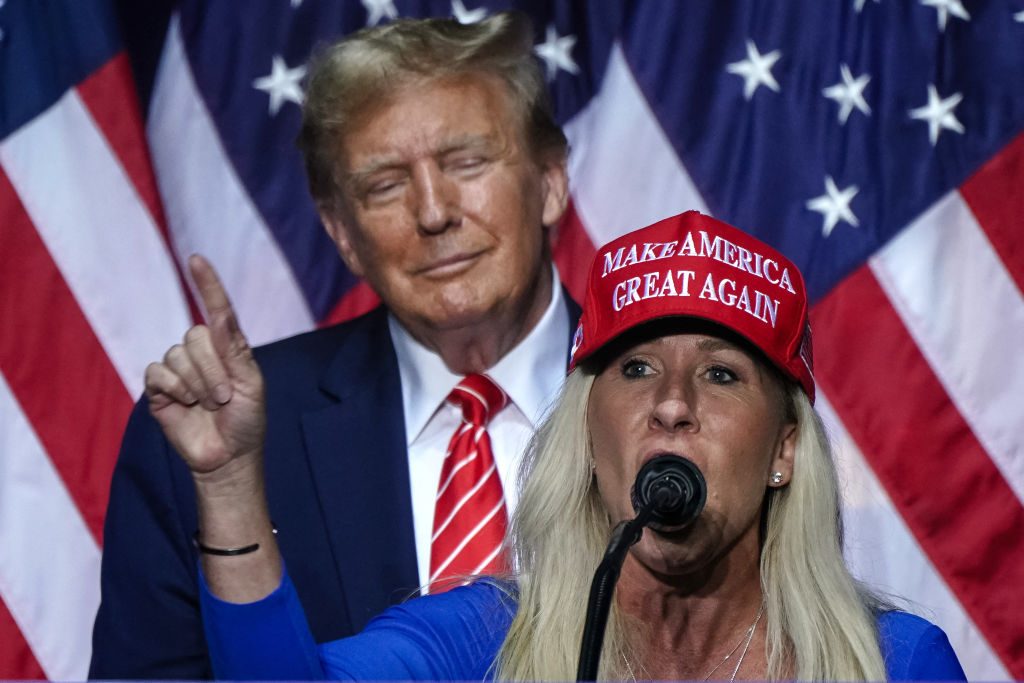Georgia’s Republican Congresswoman Marjorie Taylor Greene has long marched to the beat of her own drum. During her time in Washington, Greene, 51, has cultivated a bombastic personality on and off social media that has turned her into a household name.
In recent months Greene has started to position herself as a kind of MAGA iconoclast — willing to break with the party line on a number of high-profile issues. In July, for example, she demanded the full release of government files related to Jeffrey Epstein, warning: “Dangling bits of red meat no longer satisfies. They want the whole steak dinner and will accept nothing else.”
Her sharpest departures, though, have come on foreign policy. Earlier in the summer, she opposed US participation in bombing runs against Iran, reminding Republicans that many of Trump’s supporters had voted for “no more foreign wars”. And more recently, Greene joined Bernie Sanders in urging Washington to help end the famine in Gaza. In a lengthy post on X, she questioned the scale of US financial and military aid to Israel, arguing that “means every U.S. tax payer is contributing to Israel’s military actions.” She added: “Does Hamas deserve it? Yes. Do innocent people and children deserve it? No.”
Greene’s position on Israel is perhaps the most surprising pivot. She not only blasted a fellow Republican, Florida Congressman Randy Fine, for his advocacy for starvation tactics, but she went even further than most of her Democratic colleagues and deemed the war a “genocide”. This has prompted howls from America’s Israel lobby, which is now using her remarks to fundraise.
This episode underscores how Greene’s brand of MAGA iconoclasm is forcing debates that her party often tries to avoid — and it’s drawing national attention. Although the GOP establishment has long backed Israel, support among the party’s base has been declining. Polling from earlier this month shows that Republican voters with unfavourable views of Israel rose from 27% in 2022 to 37% in 2025 — and jumped to 50% among GOP voters aged 18 to 50.
Greene’s increasingly outspoken stance reflects this shift. Yet the Georgia congresswoman faces a clear challenge: how to maintain her independence while preserving her ties to Donald Trump. So far, she’s balanced these priorities by simply ignoring the elephant in the room: she has never publicly blamed Trump for failing to release the entirety of the Epstein files, joining Israel’s military campaign against Iran, or continuing to support the Israeli government’s policies towards the Palestinians.
To many onlookers, this understandably represents a contradiction or even political cowardice: she’s willing to break with Trump’s policies without naming the man himself as the one who is responsible for enacting them.
But perhaps Greene’s strategy is the only way to spur debate within the party. It is in many ways identical to how populist politicians in the Democratic Party railed against the big banks after protesters took to American cities during Occupy Wall Street, but they rarely aimed their criticisms at Obama, who was the one who prevented major prosecutions of the financial industry.
By carving out her own lane in the party, Greene is chipping away at the taboo to break with Republican leaders on major policy issues, even if she can’t bring herself to criticise Trump by name. It’s difficult to say what impact exactly she will have on debate within the Republican Party, but it is an institution that badly needs iconoclasm at a time when many American institutions are so unpopular and so many Americans in both parties are crying out for a change to the status quo.











Join the discussion
Join like minded readers that support our journalism by becoming a paid subscriber
To join the discussion in the comments, become a paid subscriber.
Join like minded readers that support our journalism, read unlimited articles and enjoy other subscriber-only benefits.
Subscribe